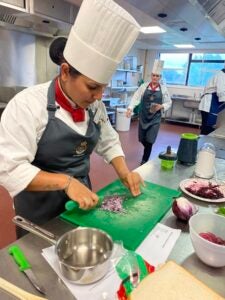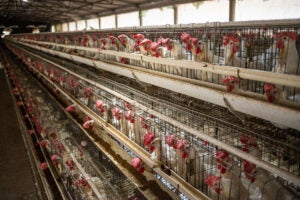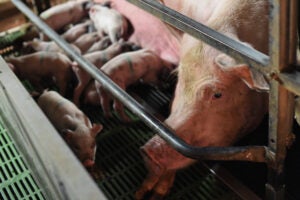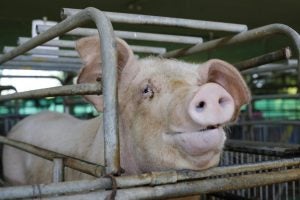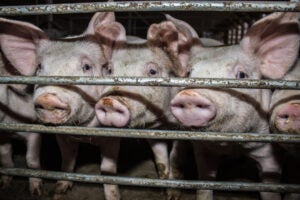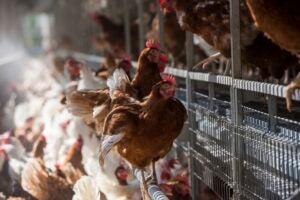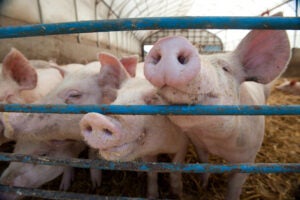
SÃO PAULO―Alibem, one of the largest pig producer integrators in Brazil, has published a new animal welfare policy that includes a commitment to reduce the months-long cage confinement of mother sows to no more than seven days, setting a new standard for all upcoming projects and facilities.
According to Humane Society International, this is a tremendous improvement over the standard group housing system that some producers have implemented. By 2031, Alibem will reduce the months-long solitary crate confinement of sows to no more than 35 days, which is 14 years before a 2045 deadline to have group housing for pigs established in Brazil.
Gestation crates, restrictive narrow metal stalls barely larger than a mother pig’s own body, deny them the freedom to move or even turn around. Mother pigs are confined during the entire length of their pregnancy, which is approximately 116 days. Confinement in the restrictive and barren crates has negative physical, psychological and behavioral impacts. In contrast, group housing systems keep sows together in pens where they have the opportunity to express natural behavior, comfortable movement and healthy social interactions. While group housing is becoming much more widespread, some producers using group housing still confine sows in crates for up to six weeks or 42 days after breeding, before moving them into group housing. HSI encourages producers to adopt crate-free systems where groups are formed before the sensitive period of the pregnancy and mother pigs are not confined in stalls for longer than seven days.
Anna Cristina Souza, policy and program manager for HSI Farm Animal Welfare and Protection in Brazil, praised the company’s decision to improve pig welfare and said: “Alibem’s commitment to go gestation crate-free for all new projects makes it a leader in animal welfare in the pig industry. This decision means that tens of thousands of mother pigs will be relieved from months confined in a crate barely larger than their own bodies.”
Souza says this signals an even brighter green light for the Brazilian pig sector to move away from gestation crates. There is a quiet revolution in Brazil, with the largest pork-producing companies implementing group housing systems Alibem joins other industry giants, such as JBS, BRF, Aurora, Pamplona, Pif Paf and Allegra, on the journey to either completely phase out or significantly reduce the amount of time that mother pigs are in solitary crate confinement. Together these companies represent most of the pig industry in Brazil.
ENDS
Media contact: Anna Cristina Souza,policy and program manager for HSI Farm Animal Welfare and Protection in Brazil, asouza@hsi.org

